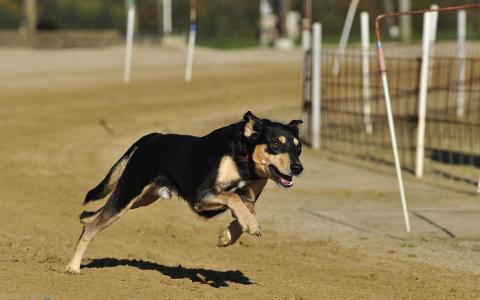
Another great bit of insight from CPAlliance, this one from financial planner Anthony M. Corrao. As always, if you like the ideas or simply want to pass them on to your clients, CPAlliance is eager to talk.
Last month, I did something I never dreamt that I would do… I went quail hunting. On a ranch that was over 8,000 acres, my group met with a guide who explained the do’s and don’ts of quail hunting and introduced us to our secret weapon: dogs. You may think on a piece of land that is 8,000 acres in size, surely, there must be a lot of quail, and there is, but quail are small, elusive birds.

They blend in well to their surroundings and without aid, you could travel the entire ranch and miss them. Once prepared for our hunt, we hopped into our jeeps with our guns ready and headed out into the palmetto brush in search of quail. We were barely fifteen minutes into our hunt before we learned the true value of the dogs we brought with us. The dogs listened to commands, effortlessly did their job, and helped us find a ton of quail.
Dogs, when hunting, provide value, but what are dogs when it comes to investing? I am sure you may have heard that phrase “that stock has been a dog” or something similar. A dog is a security, most often a stock, that has underperformed when compared to its peers or to its benchmark. A security may underperform for many reasons. It may be in a struggling industry, it may have internal operational issues to work through, or it may just not be fully appreciated by the market yet. Sometimes though external events like a pandemic or another economic crisis can turn a stock into a “dog”, even if it was not before. It is at these points of stress that it is crucial to know why you own the “dog”, or why you would buy a “dog”.
Peter Lynch, a value investing proponent and manager of the Fidelity Investments’ Magellan Fund once said, “Know what you own and why you own it.”
This is crucial to navigating market corrections or downturns. Do you own an ETF or mutual fund that follows the market, or do you own stock in a company like Wal-Mart? Last March if I asked you to look at the market, it would be a scary picture. There would be what we would call “fleas”. Fleas, as you can imagine, are not good things for dogs to have. The pandemic was raging, an invisible enemy that the world was not prepared to fight. Stocks, bonds, gold, and even oil were trading erratically, and many investors were not sure what to do. They were itching themselves with nerves.
But if I had asked you to go Wal-Mart and tell me what it looked like, you would see a store with more cars in its parking lot than anywhere else in town. There were lines to get in the store and, at times, bare shelves as consumers bought all the goods on them! At a time like that, it’s easy to understand why you may want to own a stock like Wal-Mart, even if the stock seemed like a dog for a while before that. There’s nothing wrong with owning a dog… as long as your dog has no fleas.
How exactly does this relate to the market today? Well, I often hear two things from people looking to invest. First, that the market is too expensive today, and second, that it is better to wait and get in when the market gets lower. I often point the conversation to two quotes that have guided me through long-term investing.
First, Warren Buffett famously said, “Price is what you pay. Value is what you get.” You pay a price to buy a security. Understand its role in your portfolio and what it does for you, and what the value you get from it is.
The second was a quote from Chas Smith, the founder of CPS. He used to say frequently, “Market timing is a loser’s game.”
It is impossible to predict on any given day if the market is going to go up or down, but over time, the market goes up. Focus on the long-term, not the short-term. If you know what you own, and why you own it, then you are more prepared to weather volatility. And if your portfolio holds some dogs, or you are looking for dogs to add to your portfolio, check them for fleas. If you do not find any fleas, eventually that dog may help you find the quail you are hunting for and show you its true value.



